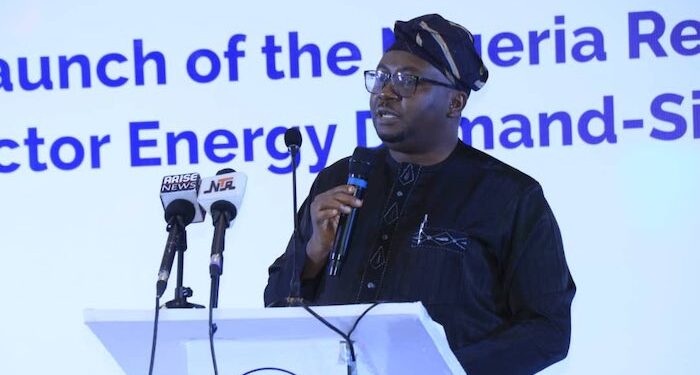Ikot Ekpene, Akwa Ibom — May 21, 2025 | Nigeria’s Minister of Power, Chief Adebayo Adelabu, has issued a stern warning over the state of the country’s electricity distribution sector, describing power Distribution Companies (Discos) as the “weakest link” in the nation’s energy value chain.
Speaking at a Senate Committee on Power retreat, Adelabu lambasted the Discos for poor performance, chronic underinvestment, low remittances, and failing infrastructure—factors he said threaten to undermine recent gains in power generation and transmission.
“We need to get tough with the Discos. They’ve disappointed Nigerians and are now frustrating the gains made in generation and transmission,” Adelabu said.
Sector at Risk: Low Revenue and Unsustainable Subsidies
According to the minister, despite reforms and increased tariffs boosting sector liquidity from ₦1 trillion in 2023 to ₦1.7 trillion in 2024, the distribution companies remain underperforming.
He revealed stark regional disparities in Disco remittances:
-
Northern Discos remitted only 30% of their ₦408.86 billion bill in Q4 2024
-
Southern Discos fared better with 67% remittance, with Lagos-based Discos accounting for 70% of that figure
He described the situation as “unsustainable,” citing a ₦200 billion monthly subsidy shortfall and a ₦4 trillion backlog owed to generation companies—₦1.94 trillion of which was accumulated in 2024 alone.
Ailing Infrastructure and Metering Crisis
Adelabu said the lack of infrastructure investment—especially in areas outside economic hubs—has deepened inequality in power access, noting that many Discos used bank loans for asset acquisition rather than infrastructure upgrades.
He cited the persistent metering gap as a key driver of revenue loss, electricity theft, and consumer distrust. To address this, the government is:
-
Rolling out the ₦700 billion Presidential Metering Initiative (PMI)
-
Partnering with the World Bank to deliver 4.3 million meters by 2025
-
Already deployed 75,000 meters in April 2024, with another 200,000 expected in May
“Closing the metering gap is fundamental to fair billing and financial sustainability,” he emphasized.
Grid Stabilised, But Distribution Still a Bottleneck
Despite these challenges, Adelabu reported that the national grid has remained stable throughout 2025, with no recorded collapse. This, he said, was due to hard work and infrastructure upgrades:
-
61 transformers installed in 2024 by the Transmission Company of Nigeria (TCN)
-
Additional 13 high-capacity transformers installed in early 2025
Still, he warned that without urgent capital injection into distribution, recent improvements—including a historic 6,003MW generation milestone in March 2025—would not benefit consumers.
Legislation, Vandalism & TCN Underfunding
Adelabu urged the National Assembly to pass stricter laws against vandalism, power theft, illegal connections, and meter tampering. He argued that such crimes should be treated as criminal offences, not civil matters.
“Our towers are toppled by saboteurs and meters are tampered with. We need stricter laws and public vigilance to protect these assets,” Adelabu warned.
He also called for better funding for TCN, which he said currently operates only on Internally Generated Revenue (IGR) that “can’t even pay salaries.” Adelabu recommended that the agency be accommodated in federal budget appropriations.
Power Plans for Northern Nigeria
Adelabu announced targeted efforts to boost supply in underserved northern areas:
-
Development of the 1,000MW Makurdi hydropower project
-
Revival of the 215MW Kaduna Thermal Plant, currently 87% complete but abandoned for five years
“We are committed to correcting regional imbalances and ensuring no Nigerian is left behind in our energy reforms,” the minister said.
Conclusion: Restructuring and Reform Inevitable
Adelabu concluded with a warning: underperforming Discos may face restructuring, and the government would enforce performance benchmarks more strictly moving forward.
“Without urgent reform in distribution, the billions spent on generation and transmission will fail to deliver results. We must act now,” he said.


